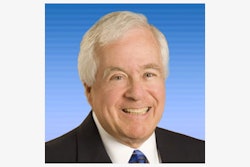More resources are available today to doctors who are considering selling their practice. With the rise of the dental service organizations (DSOs) and the speed of consolidation picking up, many people have decided to enter the world of dental deal-making. This has created a murky environment for doctors who are seeking proper representation when exploring their options about whether to partner with a DSO or sell their practice.
Resources available to doctors when selling a practice
 Ryan Mingus.
Ryan Mingus.
As with any maturing industry or market, it is common to see new entrants in the space. The dental market is no different, and we are regularly seeing new DSOs emerge as well as new professional and support service companies entering the space.
Working in a rapidly changing and maturing environment can be challenging, and it's important to be as diligent as possible when selecting partners for your business. Choosing the wrong accountant, the wrong practice management software, or the wrong supplier can be detrimental to you as the practice owner/operator.
When planning for the next phase of practice, whether it be a sale to a private dentist or a partnership with a DSO, it is important to understand the resources available to you. In this article, I review the landscape so that when you interview advisers, you have reference points to navigate with.
Historical sales of dental practices
Up until the early to mid-2000s, dentists had one option in selling their business, which was to sell it to another dentist. Generally, a selling dentist would rely on a regional practice broker who had very specific knowledge of the doctors in the market and who was looking to purchase a practice or become an associate with the intent of buying out the existing doctor.
With the rise of DSOs, many traditional brokers have had to sell practices to a new type of buyer: DSOs. Selling a practice in a doctor-to-doctor deal is very different than selling to a private equity (PE)-backed DSO. PE-backed DSOs have financial analysts and attorneys to evaluate deals, provide offers, and create complex structures.
Asking the right questions
The skills and qualifications required to properly represent a doctor who is interested in a DSO partnership are not easily obtained. When choosing an adviser, it's important to consider -- and ask candidates -- the following questions:
- What is your experience with selling practices to DSOs?
- How many deals have you closed?
- How many different buyers have you worked with?
- Do you have an in-house analytics team working for your clients, or do you outsource? (Outsourcing analytics is not in sellers' best interest.)
- How familiar is the adviser with PE firms backing DSOs in the space?
- Are you compensated by DSOs for bringing clients to them?
- How many past clients that sold to DSOs can you introduce me to?
State of the (M&A adviser) union
New entrants have been flowing into the space and therefore doctors looking to transition must do their due diligence! We have seen several bad actors in the space that are attempting to "roll up" a group of dentists to maximize the valuation or the "multiple" they would receive in the sale to a DSO.
These individuals lack experience in buying or selling businesses in the PE environment, and they have left unfulfilled promises to doctors. Additionally, there are consultants in the space who are trying to monetize their clients. They may ask you to sign up for a specific program or ask you to sign a contract with several promises around purchasing your practice or partnering with their DSO. They promise equity in their organization and often it is never realized. Hiring an adviser who exclusively focuses on representing dental practice owners in a sale is your safest and most rewarding option.
There is only one way to maximize the value of your business and that is to run a professionally marketed sales process to fully explore the market. The number of buyers has never been greater and the range of quality has never been broader.
It is easy to get caught up in the feverish pace of consolidation, but a formal process requires a substantial time commitment from the seller and an experienced adviser to help you navigate the process. Ask the right questions, do your diligence, and make the best decision for the business you've spent your life building.
Ryan Mingus is managing director of Tusk Partners and has more than 12 years of sales and leadership experience in the dental and healthcare industry, most recently as the business development director for strategy and optimization at Align Technology Inc. Mingus earned his bachelor's degree in economics and business from the Virginia Military Institute and his Master of Business Administration from the University of San Diego. He also held the rank of captain in the U.S. Army National Guard.
The comments and observations expressed herein do not necessarily reflect the opinions of DrBicuspid.com, nor should they be construed as an endorsement or admonishment of any particular idea, vendor, or organization.



















